🔍 Editizm Proofreading Services
Are you a marketing student striving for perfection in your assignments? Do you want to ensure that your nursing assignment reflect the highest standards of accuracy and professionalism? Look no further! Editizm is here to elevate your written work to the next level.
✨ Why Choose Editizm Proofreading?
📚 Experts: Our team of experienced proofreaders has a variety of experience in all areas. 100% Quality Guarantee!
🔐 Confidentiality: Your documents are handled with the utmost confidentiality and respect for privacy.
🎯 Precision and Accuracy: We go beyond mere grammar and punctuation. Our professional proofreaders meticulously review your assignments to ensure precision, coherence, and adherence to writing standards.
🚀 On-Time Delivery: Tight deadlines? No problem! We prioritize efficiency and deliver polished documents promptly, allowing you to meet your submission deadlines with confidence.
🤝 Personalized Feedback: Receive detailed feedback on your writing strengths and areas for improvement. Our goal is not just to correct but to empower you to become a better writer.
📈 Affordable Rates: Quality proofreading shouldn’t break the bank. Our services are competitively priced to make professional proofreading accessible to all students.
An economics course covers a wide range of topics that explore how individuals, businesses, and governments make decisions in allocating resources. The specific content of an economics course may vary depending on the level (introductory, intermediate, advanced), the institution, and the instructor’s focus. Here are common areas covered in an economics course:
1. Principles of Microeconomics
– Introduction to microeconomic concepts
– Supply and demand
– Consumer behavior and utility maximization
– Market structures (perfect competition, monopoly, oligopoly)
2. Principles of Macroeconomics
– Overview of macroeconomic concepts
– Gross Domestic Product (GDP)
– Unemployment and inflation
– Fiscal and monetary policy
3. Microeconomic Analysis
– Elasticity of demand and supply
– Production and cost analysis
– Perfect competition and market failures
4. Macroeconomic Analysis
– Aggregate demand and supply
– Economic growth
– Business cycles and economic fluctuations
5. International Economics
– Trade theories (comparative advantage, absolute advantage)
– Balance of payments
– Exchange rates and international trade policies
6. Labor Economics
– Wage determination
– Unemployment and labor market policies
– Human capital and education
7. Development Economics
– Economic development theories
– Poverty and inequality
– Role of institutions in development
8. Environmental Economics
– Economic analysis of environmental issues
– Market-based environmental policies
– Sustainable development
9. Public Economics
– Government spending and taxation
– Public goods and externalities
– Social welfare and public policy
10. Monetary Economics
– Money supply and demand
– Central banking and monetary policy
– Inflation targeting
11. Game Theory
– Strategic interactions among rational decision-makers
– Nash equilibrium and its applications
12. Behavioral Economics
– Psychological factors in economic decision-making
– Bounded rationality and heuristics
– Applications to policy and business
13. Econometrics
– Statistical methods in economics
– Regression analysis and hypothesis testing
– Empirical research in economics
14. Financial Economics
– Capital markets and investment analysis
– Risk and return
– Financial institutions and markets
15. Health Economics
– Economic analysis of healthcare markets
– Health insurance and public health policy
16. Political Economy
– Interactions between economics and political institutions
– Analysis of economic policies and their political implications
Economics courses often involve theoretical discussions, empirical analysis, and practical applications through case studies and projects. The goal is to provide students with a deep understanding of economic principles, analytical tools, and their applications to real-world problems. Additionally, economics courses aim to develop critical thinking, quantitative skills, and the ability to analyze economic phenomena at both micro and macro levels.






Reviews
There are no reviews yet.